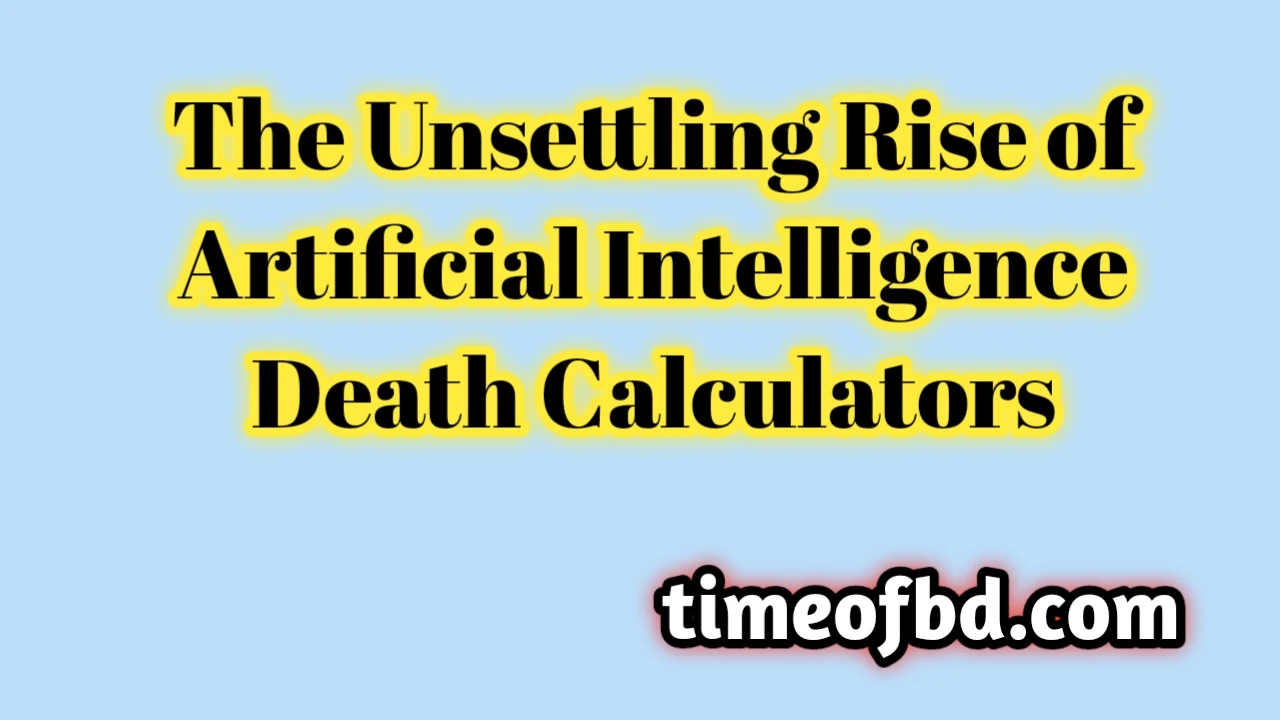
artificial intelligence death calculator
Introduction:
In recent years, the intersection of technology and mortality has taken an unexpected turn with the emergence of Artificial Intelligence Death Calculators. These tools claim to predict an individual's lifespan based on various factors, raising ethical concerns and sparking debates about the implications of such advancements. In this blog post, we will explore the concept of AI death calculators, their potential impacts on society, and the ethical considerations surrounding their use.
Understanding AI Death Calculators:
AI death calculators operate by analyzing a myriad of data points, including personal health history, lifestyle choices, genetic information, and even socio-economic factors. Using complex algorithms, these calculators generate a numerical estimation of an individual's life expectancy. The purported goal is to encourage healthier living and preventative measures, but the ethical implications of such predictions cannot be ignored.
Potential Benefits:
Proponents argue that AI death calculators could serve as powerful tools for preventive healthcare. By providing individuals with personalized insights into their potential lifespan, these tools could motivate people to adopt healthier lifestyles, undergo regular check-ups, and make informed decisions about their well-being. In theory, this proactive approach could lead to a reduction in lifestyle-related diseases and healthcare costs.
Ethical Concerns:
However, the ethical concerns surrounding AI death calculators are profound. Critics argue that these tools oversimplify the complex nature of human life and health, reducing individuals to mere statistical outcomes. The psychological impact of receiving a potentially grim prediction could lead to anxiety, depression, or even fatalistic attitudes. Moreover, there are worries about the misuse of such data, including potential discrimination in insurance coverage, employment, or other aspects of life.
Privacy and Security:
The collection and analysis of personal health data for AI death calculators raise serious privacy and security issues. Individuals may be hesitant to share sensitive information if they fear it could be misused or fall into the wrong hands. The potential for data breaches or unauthorized access to such sensitive information poses a significant threat to the well-being and privacy of individuals using these calculators.
Accuracy and Reliability:
Another critical aspect of AI death calculators is the accuracy and reliability of their predictions. Life expectancy is influenced by a multitude of unpredictable factors, and relying solely on algorithms may lead to inaccurate estimations. The potential for false positives or negatives could have severe consequences, impacting individuals' mental and emotional well-being or influencing important life decisions.
Social Implications:
The use of AI death calculators also raises broader societal questions. Would the widespread adoption of such tools lead to a society that prioritizes longevity over the quality of life? Could it result in discrimination against individuals deemed to have a shorter life expectancy? These are complex questions that require careful consideration as society grapples with the integration of technology into aspects as personal as one's lifespan.
Conclusion:
The rise of Artificial Intelligence Death Calculators introduces a new frontier in the ongoing relationship between technology and humanity. While these tools hold the promise of fostering healthier lifestyles and preventive healthcare, the ethical concerns surrounding privacy, accuracy, and societal implications cannot be ignored. As we navigate this uncharted territory, it is essential to strike a balance between technological innovation and the preservation of human dignity and autonomy.
